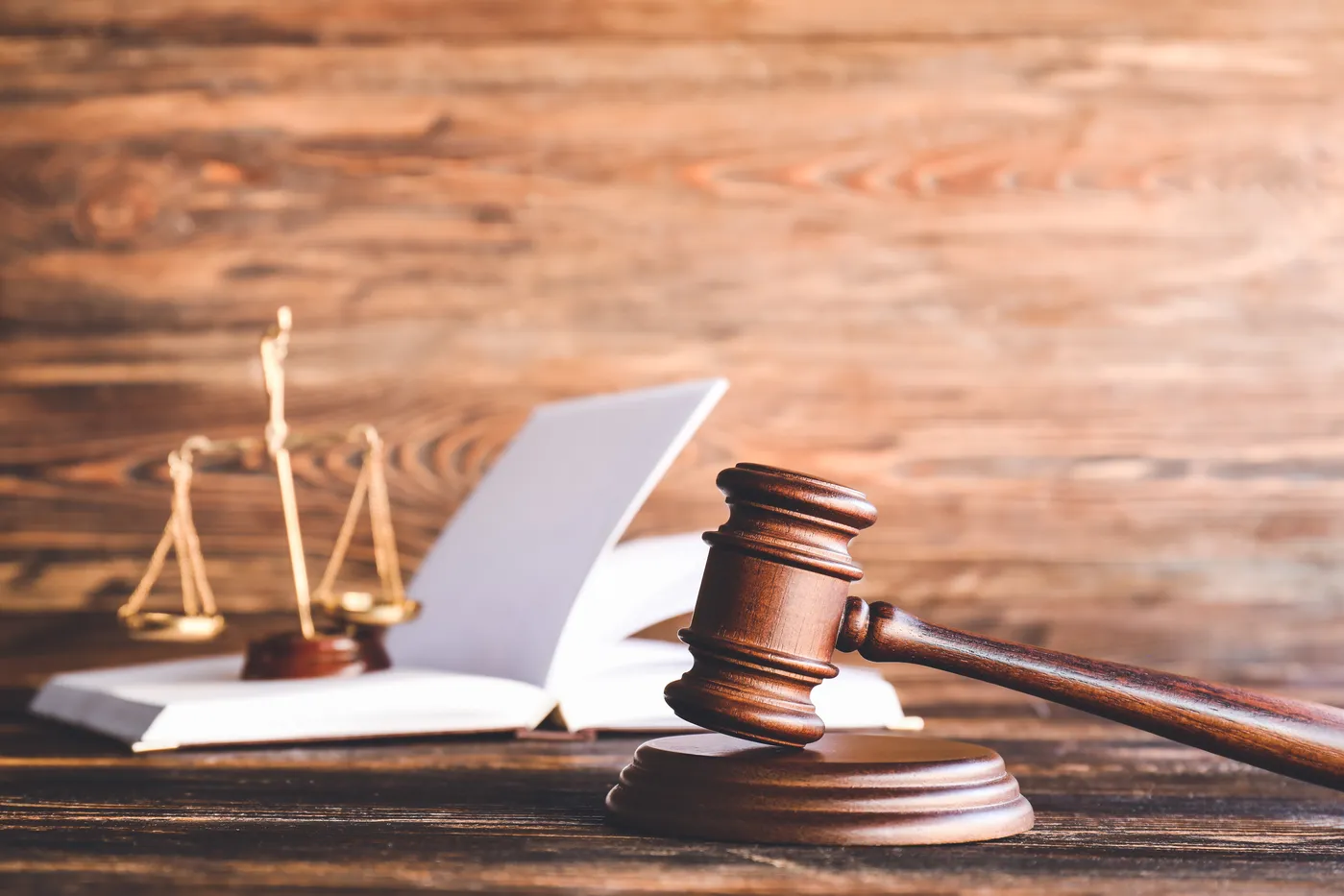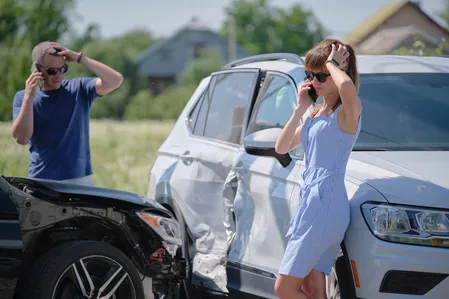5 min read time
Table of Contents

A loss of consortium claim in Nevada is a way domestic partners or married couples can recover compensation for any damage to their relationship caused by a car accident or another personal injury.
Understanding how loss of consortium claims work and what factors go into building them is vital for any domestic partner or couple seeking compensation for damage to their relationship.
What Is Loss of Consortium?

Loss of consortium in personal injury claims is a legal term that describes the loss of benefits from being in a domestic relationship or marriage. Loss of consortium claims generally focuses on the loss of affection, companionship, comfort, and sexual relations.
In Nevada law, loss of consortium is outlined in NRS 41.085, which states the rights of a spouse to recover damages for loss of support and companionship:
"The heirs may prove their respective damages in the action brought pursuant to subsection 2 and the court or jury may award each person pecuniary damages for the person’s grief or sorrow, loss of probable support, companionship, society, comfort and consortium, and damages for pain, suffering or disfigurement of the decedent. The proceeds of any judgment for damages awarded under this subsection are not liable for any debt of the decedent."
Loss of Intimate Relations
One of the most noticeable aspects of the loss of consortium is the loss of sexual relations, which can arise if the spouse's injuries render them incapable of engaging in physical intimacy, leading to emotional and relationship damage.
Nevada law allows an injured person to seek loss of consortium damages for the loss of intimate relations.
Loss of Companionship
Loss of companionship is the emotional support and social relationship in a marriage or domestic partnership lost due to an injury caused by a third party.
Loss of companionship covers the love, affection, and comfort the injured victim can no longer provide.
Loss of Services
Household contributions, such as doing household chores, cooking, or performing maintenance that the injured victim used to provide before the accident, can be compensated for in a loss of consortium claim under loss of services.
Loss of Support
The economic damages caused by the car accident, such as the loss of income in the household, can be sought for in a loss of consortium claim.
Factors of a Loss of Consortium Claim
Many factors go into building and determining the value of a loss of consortium claim, some key factors being:
Severity of Injury: The severity of the injuries sustained will determine the case's value; generally, severe injuries result in higher compensation amounts.
Duration of Injury: Injuries that result in long-term or permanent damage will lead to the loss of consortium claim being worth more in monetary value.
Relationship Strength: When filing a loss of consortium claim, the court may analyze the strength and closeness of the relationship before the accident. Strong, loving, and supportive relationships often call for higher compensation.
Age and Health: If both parties of the marriage or domestic partnership are young and healthy, the court may award a higher compensation amount to compensate for the lost years of young companionship and support.
Impact on Affection: The effect on intimate relations between domestic partners will play into the personal injury claim's value. This includes how the injury affects a domestic partner's ability to maintain their physical relationship, such as hugging, holding hands, and sexual relations.
Loss of Companionship: The extent of emotional and physical support lost due to the accident will greatly matter in the injured victim's claim.
If you want to ensure maximum compensation is recovered in your loss of consortium claim, contact one of our experienced personal injury attorneys today by calling (702) 566-3600.
Proving a Loss of Consortium Claim

Proving a loss of consortium claim requires as much comprehensive evidence as establishing a valid personal injury claim would take.
A detailed step-by-step guide on determining the loss of consortium damages is provided below.
Establishing the Relationship
The first step of a loss of consortium claim is proving that a legal relationship between the claimant and the injured victim has been established.
Doing so may require:
Marriage Certificate: A marriage certificate to establish a lawful marriage can establish a marital relationship.
Domestic Partnership: Domestic partners or civil unions must provide relevant documentation to establish a relationship.
Parent-Child Relationship: Birth certificates or adoption papers may be necessary to establish a relationship in a personal injury lawsuit involving parent-child relations.
Proving the Injury's Impact
After establishing the relationship between the injured spouse and the claimant, the injuries and their impact on the relationship must be proven. This can be done through:
Medical Records: The medical bills and records of the injured partner will be used to prove the injuries and their extent.
Expert Testimony: A medical professional's testimony explaining how the injuries affect the person's life and ability to engage in a marital relationship can further demonstrate the impact of the injury.
Providing Personal Testimony
Testimony from the non-injured spouse and injured spouse can further prove the loss of consortium. The testimony can include:
Spouse's Testimony: The non-injured spouse can describe how their relationship has changed since the injury. Changes such as loss of moral support, ability to bear children, and other activities should be explained.
Injured Spouse's Testimony: If possible, the injured spouse should testify about the pains caused by the injury and how the other spouse suffered due to the injuries.
Family Members and Friends' Testimony: Statements from any family or friends who observed the changes in the relationship can help build a valid claim.
Demonstrating the Loss of Services and Support
A partner will need to provide evidence to prove the loss of household contributions and loss of financial support; this evidence may include:
Household Records: Records outlining the injured party's contributions to the household before the injury will help prove the loss of services.
Employment Records: The injured victim's pay stubs and employment records can help demonstrate the loss of financial support.
What Damages Can You Recover in a Loss of Consortium Claim After a Car Accident
In a loss of consortium claim, you can recover the following damages:
Loss of Intimacy and Affection: The loss of sexual and physical relations is one of the primary damages you can recover in a loss of consortium claim.
Loss of Companionship: Compensation can be sought to address the loss of emotional and social support.
Loss of Household Services: The loss of Domestic tasks such as cooking, cleaning, laundry, and home maintenance can be compensated for.
Loss of Support: Financial support lost due to the spouse's injuries can be sought in a loss of consortium claim.
Pain and Suffering: Emotional distress and mental anguish caused by the injuries can be considered in a loss of consortium claim.
How a Car Accident Attorney Can Help File a Consortium Claim
You'll need an experienced lawyer to file a loss of consortium and personal injury claim successfully.
To achieve that successful claim, we recommend you contact a personal injury attorney from our Las Vegas law firm today, as with 20+ years of experience in wrongful injury law and millions recovered in economic and non-economic damages, our attorneys will obtain the compensation you're entitled to.
Get a free consultation today with a Las Vegas personal injury lawyer by calling (702) 566-3600.
Obtain the Compensation You're Entitled To
Contact Us Today
Rodney Okano Car Accident Lawyer is a Las Vegas personal injury law firm with over 20 years of experience helping clients obtain maximum compensation following injuries from accidents such as car crashes, worksite injuries, and slips and falls. Over those years, The Rodney Okano Car Accident Lawyer Law Firm has become an experienced law firm that can ensure exceptional results for any of its clients.






![Nevada Car Accident Laws [2026 Update] Cover Image](https://cdn.rodneyokano.com/media/images/nevada-car-accident-laws-2026-update-cover-image-small.webp)